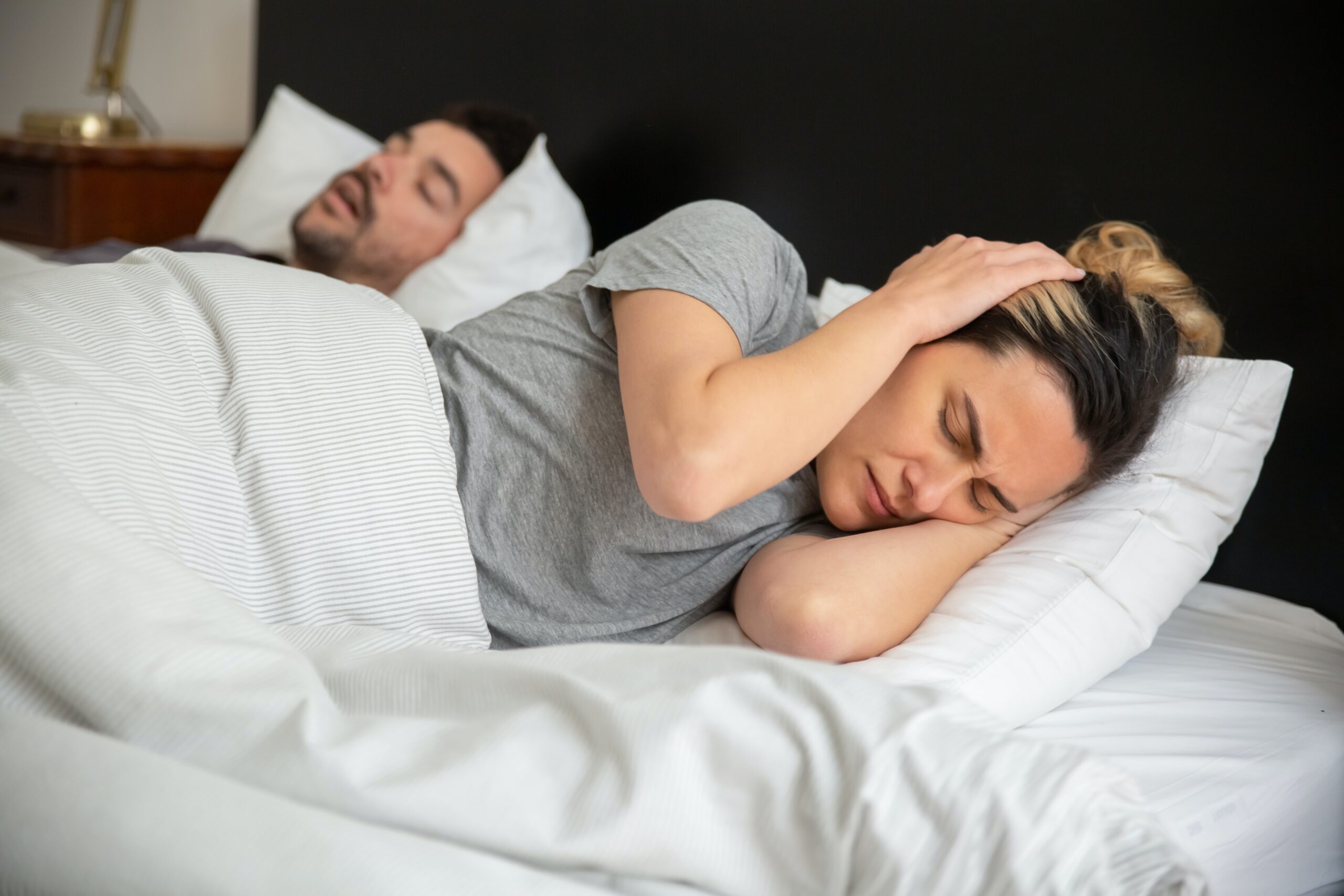Have you ever been awakened by someone who’s snoring? It can be annoying when it wakes you from a deep sleep. However, even worse than that is when that someone turns out to be you. Snoring is not just a nuisance, it can be very harmful to your health.”The Risks of Snoring”, reveals that among other things, an older and heavier population makes snoring an even bigger health problem than originally perceived.
According to the Apnea Health Center, the most common risk factors for having sleep apnea are being a man over the age of 40, overweight with a large neck size, having large tonsils, and possibly having a family history of snoring. Did your grandfather and/or father used to snore all the time? While men have a higher risk, women can definitely suffer from sleep apnea as well.
What Is Sleep Apnea?
Sleep apnea is a “sleep” disorder divided into two categories. However, it is not easy to differentiate one from the other, as they are either “central” or “obstructive” sleep apnea. And they can over overlap each other.
It is wise to now pay heed to symptoms that you may have become accustomed to or have even ignored in yourself or others who may snore. If you feel chronically sleepy every day, you may want to think about your sleep pattern, as you may have other symptoms of sleep apnea.
- Do you or someone near and dear to you, snore loudly? This is most common in “obstructive “sleep apnea (OSA) and is the most common of the two forms of sleep apnea. It is caused by a blockage of the airway when the soft tissue in the back of the throat collapses during sleep. Along with this may be a long pause of silence with breathing cessation. This is another clue to the presence of sleep apnea.
- Are you awakened frequently and feeling short of breath? Or have difficulty staying asleep? This is likely related to “central” sleep apnea, where the airway is not blocked but the brain fails to signal the muscles to breathe due to instability in the respiratory control center.
- Morning headaches, dry mouth, and sore throat are among other common complaints of those who struggle with sleep apnea.
Solutions To Your Snoring Problem
Two products we found that can help you stop snoring are:
The SnoreLess Pillow is an ergonomically correct anti-snoring pillow. We like this product because it is a rather simple way to combat your snoring problem. All you have to do is use a different pillow. While the SnoreLess Pillow is effective, the other product that we found may work even better.
The Snoring Treatment is a jaw-supporting anti-snoring solution. This product works which is why we like it. While it is not as simple as just changing pillows, the Snoring Treatment is definitely much easier and more comfortable than using a Continuous Positive Airway Pressure (CPAP) machine or getting an intrusive surgery.
Both products are specially designed to treat both snoring and sleep apnea. When used in combination they are even more effective than when used on their own.
The long-term physical effects of sleep apnea can result in hypertension, stroke, or heart problems. The other side of that is poor performance in everyday activities, motor vehicle accidents, and underachievement in school for children who have developed sleep apnea at an early age.
What does one do about sleep apnea? There are sleep clinics in many communities where you spend an overnight while the trained staff watches and monitors you, capturing each snore, heartbeat, and breath on a graph. Then they make an assessment to see if you would benefit from a CPAP machine.
For the symptomatic relief of sleep apnea, the most advanced is the CPAP machine. A mask is worn at bedtime that sends a flow of pressurized air into the throat to keep the airway open during sleep. Although it has given some people relief, it is far from the ideal solution.
Sleep apnea masks are now available. The jaw supporter keeps the lower jaw in an upward/forward position, increasing the open space for the airway, and reducing air velocity and soft-tissue vibration. The mask itself is based on the principle of CPR, maintaining a clear airway, improving breathing, and reducing snoring.
An ENT physician may be the best place to go for an evaluation of the potential need for operative interventions. However, a thorough assessment of the risks or complications should always be part of the plan. The use of laser surgery is only used on patients who have more than normal soft tissue blocking their airway. A surgeon will then tighten the palate tissues. This procedure more than likely will relieve snoring completely.
Although the present-day apparatus CPAP and the masks are considered inconvenient, clumsy, unattractive, and more than likely will never match your partner’s lingerie, they are helpful in relieving snoring and sleep apnea. Therefore, helping to maintain your health and leaving other things in life to take your breath away.

